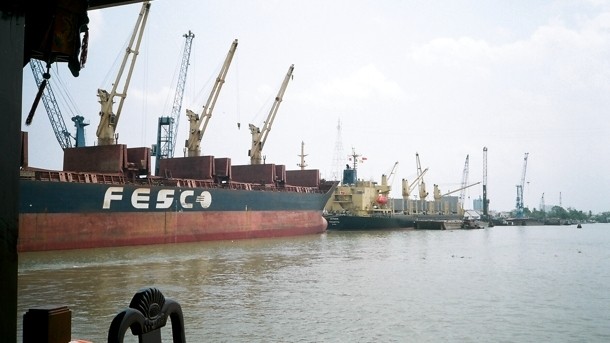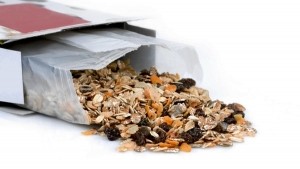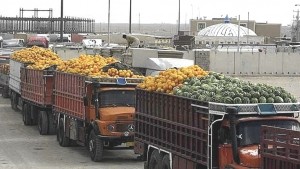South Asia radius
Businesses call for FTA reform as Indian exports continue to fall

Responding to a government statement on commerce, Assocham said it was imperative for New Delhi to find a fresh strategy to stem what has become a continuous fall in exports.
India has seen a 16-18% contraction in shipments over the last year to US$260bn—less than US$10bn more than the value of goods exported at the start of this decade.
“This is the lowest since the exports broke the US$300bn mark for the first time in 2011-12”, the association of chambers of commerce said in a statement, after 15 consecutive months of export declines.
It could take until 2018 before 2011 export levels are reached, said Assocham secretary-general DS Rawat. “That would be a seven-year reversal.”
Though he cautioned that overseas trade would remain challenging for years to come, Rawat urged the government to devise a “new game plan” including a review of free trade agreements and preferential tariffs.
It is widely believed that India’s current trade pacts have been signed for geo-political reasons more than for commercial benefits. One of these, the South Asian Free Trade Agreement, has not resulted in any significant export gains, according to an Assocham analysis.
At the same time, the country’s trade deficit has widened with Asean, the 10-member group of Southeast Asian nations which itself is on the cusp of forming one of the world’s biggest trade blocs.
Citing the India-Mercosur PTA, Rawat said that most of India’s preferential trade agreements are shallow in terms of product coverage, with exporters outside certain industry segments facing prohibitive import duties of up to 35% .
India’s nutraceutical and pharmaceutical exports have not benefited from tariff reductions under the India-Japan CEPA, the secretary-general said, mainly because it has been too cumbersome to deal with Japan’s drug regulator.
And other trade pacts have exacerbated an “inverted duty” structure whereby high import duties are levied on raw materials and intermediates, though lower duties are applied to finished goods, discouraging the production and export of value-added items.
Despite all attempts at diversification, Assocham believes that Indian merchandise exports have a narrow base, with the top 20 categories accounting for four-fifths of overall exports.
More stories from India...
Urbanisation responsible for India’s soaring breakfast cereals market
India’s breakfast cereal market has been growing at an annualised rate of over 22% over the last five years, driven largely by an increasing preference for western lifestyles and tastes.
According to Research & Markets, a data and analytics firm, the segment’s three leading companies—Kellogg India, Bagrry and PepsiCo Quaker—have captured more than three-quarters of the market.
The traditional preference among Indian consumers for hot breakfasts means that hot cereals have gained ground faster than ready-to-eat cold cereals. Given the broad spread of the market, the leading manufacturers have come to offer a range of brands appealing separately to kids, adults and the entire family.
Cornflakes, as a category, dominates the market with the highest market share, whereas other categories including oats and muesli make up the majority of the rest.
Moreover, the oats and muesli category has been growing much faster than cornflakes due to increasing health consciousness and a growing general preference for healthier foods.
Breakfast cereals manufacturers have been targeting urban consumers in particular who do not have time to spend on leisurely breakfasts.
Due to the fast-growing cities and relatively higher income levels of western India, breakfast cereals have become most popular in states like Maharashtra and Gujarat, followed by markets in northern and southern regions.
Minister seeks to transform India into a food processing re-export hub
India’s food processing minister has called on international food companies to manufacture their products in India’s “mega food parks” before re-exporting these to a country of their choosing.
Speaking at an industry event, Harsimrat Kaur Badal said that this could be done through a “plug-and-play model wherein common infrastructural facilities would be provided”.
She added that all of the 42 food parks either planned or under construction would become operational by 2019 at an investment of over Rs12,000 crore (US$1.8bn). They were devised as part of the government’s flagship “Make In India” policy to encourage manufacturing.
Badal also said has said that by allowing full foreign direct investment in multi-brand retail for food produced and processed in India, farmers would see their fortunes double due to increased investment.
She pointed out that although Indians spend on average 40% of their income on food, only 10% of what is grown in India is processed in the country.
This, she said, presented a significant opportunity for investors to enter the market, and would contribute to an eventual doubling of farmers' incomes by 2022 from manufacturers “chasing the farmers” for their produce.
Such investment would also go a long way to improve India’s supply chain by creating the necessary infrastructure for increased food shipments and reducing wastage, she said.
Arjuna’s curcumin research investment will translate to launches this year
Indian extracts company Arjuna Natural has been investing heavily in research into the health benefits of curcumin from turmeric ahead of a raft of new product launches later this year.
The Kerala-based company has been spending over US$1.5m on a clinical research programme to explore the diarylheptanoid’s health benefits as a potent antioxidant, as part of overall ingredient research worth more than 10% of the company’s annual turnover.
Extensive academic research is being conducted in India, Australia, Italy, the US and Japan on BCM-95, Arjuna's leading all-natural curcumin. Twelve clinical studies of turmeric curcumin, covering a range of conditions that include depression, Alzheimer disease, cancer and others, are ongoing.
Arjuna holds 12 patents for BCM-95 worldwide, including one last year for a method of treatment of Alzheimer’s disease. Its most recent study will be revealed in May at Vitafoods in Geneva.
“We differentiate our turmeric curcumin through a practice of extensive research and development,” said Benny Antony, Arjuna’s joint managing director. “BCM-95 is the most researched bioavailable curcumin on the market, with a majority share in the US.”
The ingredient is highly bioavailable due to the synergism between the curcumin and the compound ar-turmerone, an essential oil component of turmeric, with two dozen studies supporting its health benefits.
Arjuna’s patented formulation method involves extracting maximum quantities of free curcumin without synthetic additives. All raw materials used being completely traceable, Antony says, and the product meets the new European 2015/1933 PAH regulation that sets maximum levels in food supplements.
“This bioactive ingredient is clean of pesticides and heavy metals. Arjuna invested in the most advanced quality control equipment to meet the new EU regulations, and to ensure all products are clean and safe.
“The growing global demand for curcumin, and consumer expectations of pure formulations, encouraged Arjuna to develop a clean, GMO-free ingredient that consumers can trust,” he added.
In January, Arjuna opened an operational base in Brussels to tap into the growing European preventative health market.
Arjuna’s R&D centre employs 40 scientists who work full-time in bench research and monitoring clinical studies for various applications in the dietary supplement and pharmaceutical industries.
Arjuna’s production processes and products meet market-specific regulations worldwide. A GMP-certified, SAP-driven company, Arjuna has achieved international certifications including ISO22000, Kosher and Halal. Arjuna continues to engage in research and development, with continuing scientific validation of its novel product line through advanced clinical studies.










